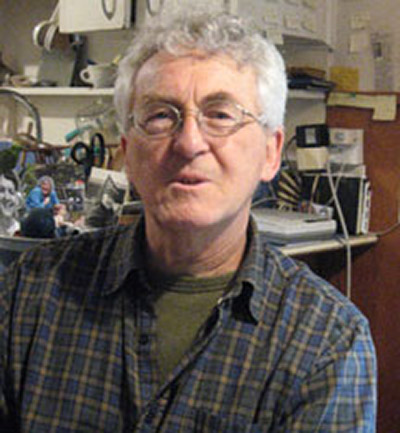
Working Around Illness Was The Only Option—Until This Carpenter Found Vim
Bob Walter, Carpenter, and VIM Patient four years ago, no one made the connection between Bob Walter’s lagging health and thyroid-removal surgery a few years before. Walter was on hormone replacement medication and had no ill effects after the surgery. He traveled to California only one week after his surgery for his granddaughter’s birth. Everything seemed fine.
When Bob started failing, it had already been a rough year: one of his daughters died of ovarian cancer, and the physiological manifestations of thyroid imbalance can greatly imitate other illnesses, as the hormones affect almost every cell of the body. The imbalance can strike multiple body systems and mimic depression: great swings in energy level and a sense of defeat.
A carpenter for more than 20 years and, at the time, a recent graduate of the School of Journalism and Communication at the University of Oregon, Bob kept working despite sometimes feeling “like a bag of sand sliced with a razor. I was getting terribly weak.” His energy would suddenly unplug, and there were floods of weakness. The illness started to dominate daily life.
“My insides were a mess, swollen and bloated, my hair was falling out, and I couldn’t work,” Walter says. “I wasn’t operating at any level, even mentally. I started to blank out, and my personality started to wither.”
Blood work and CAT scans were done to rule out cancer, but there was none. Once cancer was ruled out, Walter says VIM’s medical director reviewed his entire case history and discovered the connection to his thyroid.
Walter had had his thyroid removed because of tumors. He was able to make the insurance payments up until about a year after the surgery. Still, then the insurance costs outran his income, and paying for the follow-up on his own became too expensive: There were regular labs and doctor visits, in addition to daily medications. Walter sought out VIM, having read about it, and met eligibility because of his income.
Walter’s medications were adjusted within a few weeks, and many of the symptoms disappeared. But the process of finding the right balance of hormone intake took many more months. Without VIM, Walter would not have been able to get the medical attention he needed to gain back his health.
“I’ve always been profoundly self-sufficient,” Walter said. “I’ve never been in the system, getting food stamps.”
Like many other patients, as his health sunk, Walter continued to work and avoided people to try to deal with his health problems himself.
“It changes your whole nature and your relationship to people,” Walter says. “I began to not make phone calls to people. I didn’t want to worry them.”
Even as Walter continues now in his work, and the carpentry jobs have rolled in this summer, he doesn’t earn enough to afford insurance. But he needs monitoring, as with many chronic diseases like diabetes, that are influenced by the variables of life, and medications need adjustments continually for him to remain working. Walter returns to the clinic at least monthly to get his levels checked.
Walter is thankful that VIM was there to sort out his health problems and even offer the short-term counseling he needed to get back on track, especially at a time when he felt vulnerable. With patients with chronic illness, there is often an element of convincing people that there is an illness, that something is wrong.
“The clinic staff have treated me very respectfully and conscientiously,” Walter says, “and I’m glad they are there. In the waiting room, I’ve seen the population being served. And to think of those people not being served is incredible. To have an organization like VIM, that is the way it should be. There should always be a resource like that.”
